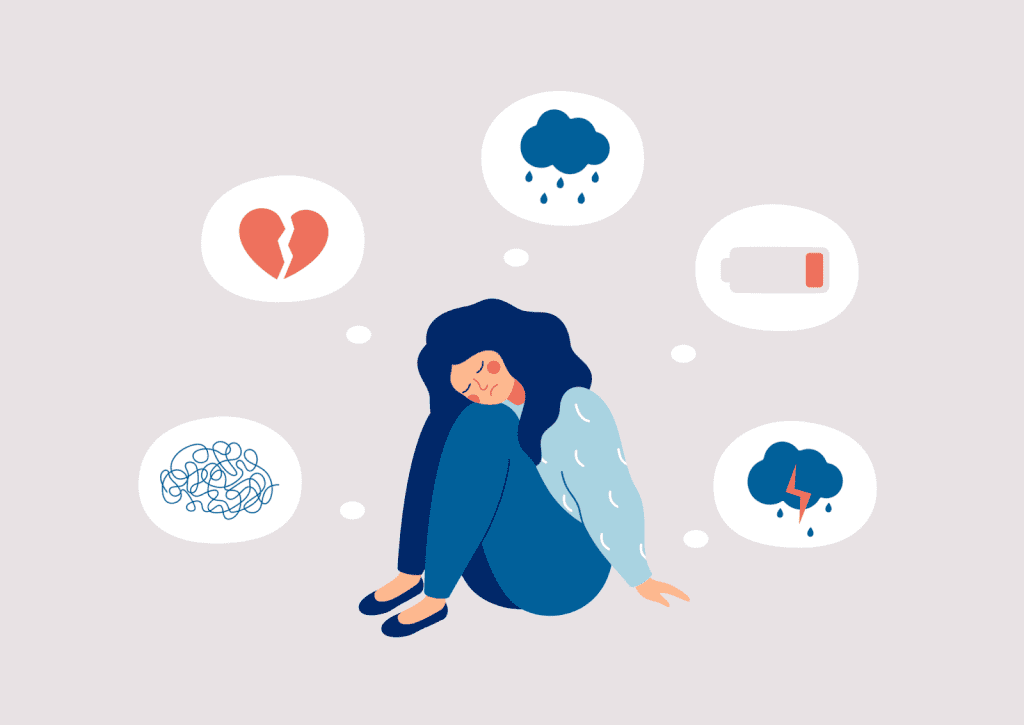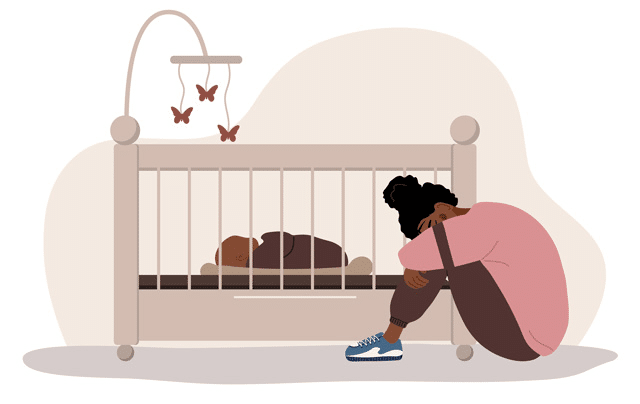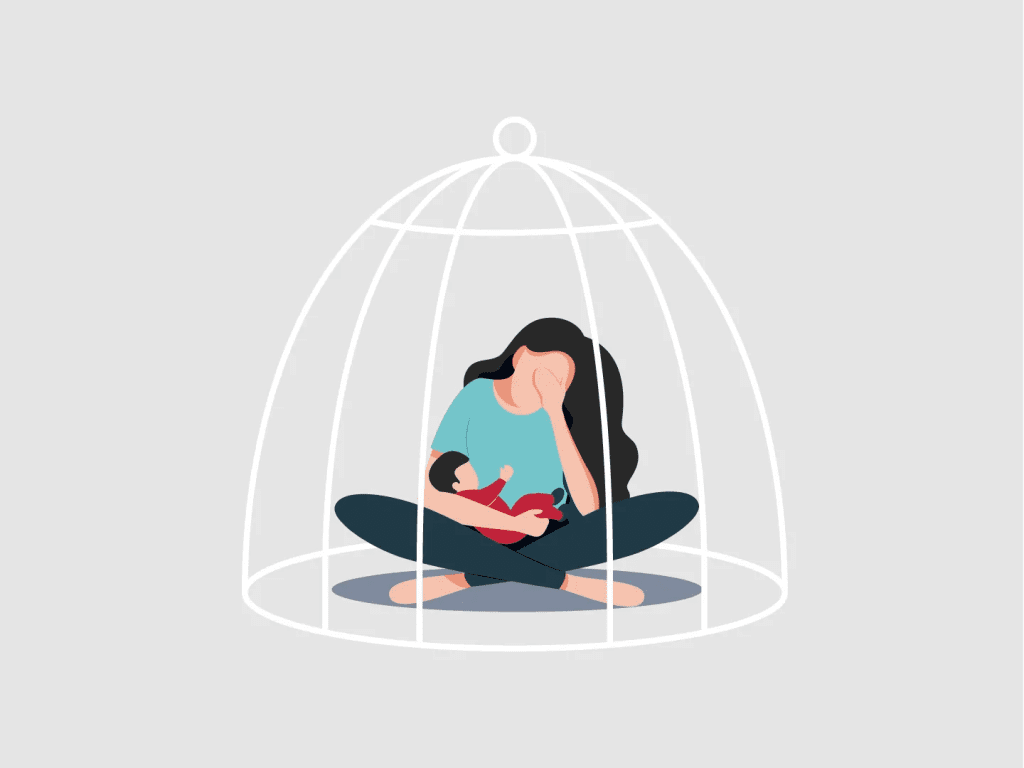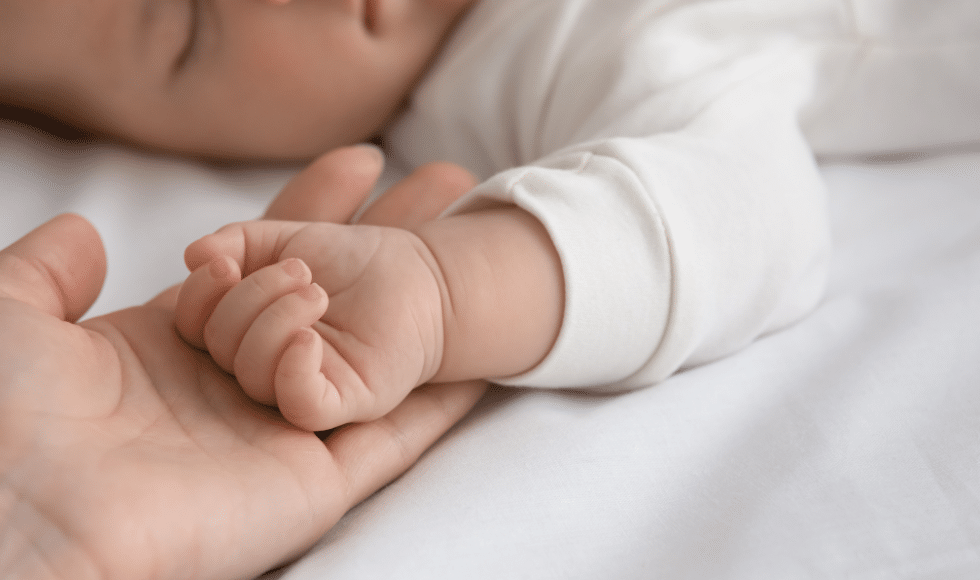Peripartum depression, which is also called postpartum depression, is when some moms feel sad or upset after having a baby. Let’s learn more about peripartum depression in this article.
Sometimes, after having a baby, moms can feel very sad or stressed. This is called peripartum depression. It’s different from feeling a bit down, and it lasts longer than the usual mood swings some moms have after childbirth.
We’re not exactly sure why some moms get peripartum depression, but it’s probably because of a mix of things like body changes and feelings. Hormones in the body, like estrogen and progesterone, can affect how moms feel after having a baby.
Before we learn about the different types of peripartum depression and explore its treatment options, let’s first understand the nature of peripartum depression.
Table of Contents
What is peripartum depression?
Some moms experience peripartum depression, also known as postpartum depression when they are pregnant or in the wake of conceiving an offspring. Dissimilar to the regular pity that a few mothers feel after labor, which generally disappears all alone, this sort of melancholy waits and causes extraordinary sensations of bitterness and lack of engagement in exercises they once delighted in. It can likewise make it challenging for them to deal with themselves and their child.
Moms experience peripartum depression either during pregnancy or within the first year after giving birth. The exact cause is not fully understood, but it is believed to result from a combination of factors such as physiological changes in the body, family history, and exposure to stressful events. Factors like being a new mom, insufficient sleep, and societal pressure can exacerbate the condition. Moms who were sad or worried before might have a higher chance of getting peripartum depression too.
When moms have peripartum depression, it doesn’t simply influence them — it can likewise affect their families, particularly their children. Mothers with this sort of sorrow could find it hard to interface with their infants, which can influence how the kid learns and feels.
It’s vital to help these mothers almost immediately. Specialists can utilize talking treatment, support gatherings, and now and again medication to assist them with feeling far improved. We ought to discuss peripartum sadness to help mothers and families and ensure they have the assistance they are waiting for to be cheerful and sound.
What are the different types of peripartum depression?
There are different types of peripartum depression, and sometimes, people can have symptoms from more than one type at the same time. Knowing which type someone has is really important so they can get the right help and treatment. Here are the different types of peripartum depression explained in detail:
- Postpartum major depression
- Postpartum anxiety disorder
- Postpartum psychosis
- Postpartum bipolar disorder
- Postpartum post-traumatic stress disorder (PTSD)
Postpartum major depression:
Postpartum major depression is a truly impressive and enduring trouble that a few mothers feel subsequent to having a child. They might not have any desire to do standard things, deal with the child, or appreciate things they used to like. This can occur during pregnancy or after the child is conceived, and it needs assistance from experts to improve.
Postpartum anxiety disorder:
Sometimes, after having a baby, mothers can feel extremely stressed or terrified a great deal. This is called post-pregnancy nervousness, and it can come in various structures. Mothers could contemplate awful things occurring, feel like they need to get things done again and again, or unexpectedly get extremely frightened, making it difficult for them to do standard things or deal with the child.
Postpartum psychosis:
Postpartum psychosis is an intense and interesting issue that can happen to mothers subsequent to having a child. Mothers with this condition could see or hear things that aren’t genuine, trust in things that aren’t correct, and become exceptionally upset or dynamic. This is a crisis, and the mother needs to go to the clinic immediately to remain protected alongside the child.
Postpartum bipolar disorder:
Postpartum bipolar disorder is a sort of state of mind issue that happens to certain mothers in the wake of having a child. They can feel incredibly cheerful and ready to go on occasion (mania) and extremely miserable at different times (depression). This makes it difficult for them to control their sentiments and activities, particularly dealing with the child. To help, doctors might give them special medicine and therapy to feel better.
Postpartum post-traumatic stress disorder (PTSD):
Post-pregnancy PTSD is the point at which a mother feels truly terrified and upset after an unnerving encounter during labor or pregnancy. She could continue to consider it, have awful dreams, and stay away from things that help her to remember the alarming occasion. This causes it difficult for her to feel OK and associate with her child.
What are the stages of peripartum depression?
It’s important to know the different stages of peripartum depression so we can help moms early. Here are the different stages of peripartum depression:
- Antenatal depression
- Postpartum blues
- Postpartum depression
- Postpartum anxiety
- Postpartum psychosis
Antenatal depression:
Antenatal depression is when a mom feels really sad or upset during pregnancy. It’s like the regular kind of depression but happens while the baby is still growing inside the mom. This can make the mom feel not interested in things, sad a lot, and have trouble sleeping or eating. It’s important to notice this and help the mom feel better because it’s not just about her; it also affects the baby.
Postpartum blues:
Sometimes, after having a baby, mothers could feel miserable, cry effectively, or get handily irritated. This is called post-pregnancy blues or blue eyes, and it’s actually normal. It happens to bunches of mothers and as a rule begins a couple of days after the child is conceived. These sentiments disappear on their own in two weeks or less. It’s like a little emotional phase, and moms feel better with the help and support of their loved ones.
Postpartum depression:
Postpartum depression is when a mom feels really, really sad and down after having a baby. It’s more serious than feeling a bit blue. Moms with this kind of depression might not want to eat or sleep, feel tired all the time, and think they’re not worth anything. It makes it very hard for them to do regular things.
Postpartum anxiety:
Postpartum anxiety is when a mom feels extremely worried, even more than usual about her baby’s safety. Sometimes, it makes her think scary thoughts or feel really scared suddenly. This can make it hard for her to do regular things and take care of her child.
Postpartum psychosis:
Post-pregnancy psychosis is an exceptionally uncommon yet difficult issue that can happen to mothers subsequent to having a child. It makes them see or hear things that aren’t genuine and feel incredibly resentful. This is a crisis, and the mother needs to go to the clinic immediately to remain protected, alongside the child.
What are the symptoms of peripartum depression?
It’s really important to notice if a mom feels very sad, worried, or scared after having a baby. If she feels this way, it’s good to talk to doctors or therapists who can help her feel better. Friends and support groups can also help a lot. The sooner she gets help, the better she will feel.
- Emotional symptoms
- Behavioral symptoms
- Physical symptoms
- Cognitive symptoms
- Relationships and social symptoms
Emotional symptoms:
Sometimes after having a baby, moms might feel really sad and cry a lot, even when there’s no clear reason. They could also feel worried, angry, or not interested in things. Sometimes, they might feel like they can’t connect with the baby or feel anything at all. These feelings can be strong and make it hard for the mom to bond emotionally with her child.
Behavioral symptoms:
When moms have peripartum depression, you can notice changes in how they behave. They might have trouble sleeping or sleeping a lot, even when the baby is sleeping. Their eating habits might change, making them gain or lose a lot of weight. They might not want to do fun things they liked before and might avoid friends. It can also be hard for them to focus or make choices. Sometimes, they might feel really bad about themselves or even think about hurting themselves or the baby.
Physical symptoms:
When moms have peripartum depression, they can feel very tired and have low energy. Sometimes, their bodies might ache all over, and they could have headaches or stomach aches for no clear reason. They might also move and think more slowly than usual. These physical symptoms, along with feeling sad and acting differently, can be signs of peripartum depression.
Cognitive symptoms:
Peripartum depression can cause mothers to have bunches of stressful considerations, particularly about dealing with the child. They could find it hard to center, decide, or recollect things, which can cause them to feel disappointed. These considerations can make it extreme for them to deal with their ordinary obligations and feel like they’re not working effectively.
Relationship and social symptoms:
Peripartum depression can make it difficult for mothers to coexist with individuals they care about, similar to their accomplices or companions. They might not have any desire to invest energy with others and could feel desolate. It may very well be extreme for them to converse with individuals and keep their connections solid, which can cause them to feel much more troubled.
What are the risk factors of having peripartum depression?
Knowing certain things about a person can help tell if they might feel really sad after having a baby. If we know these things early, we can help them feel better. Here are the possible dangers of having peripartum depression:
- Previous history of depression
- Lack of social support
- High levels of stress
- Hormonal factors
- Complications during pregnancy or childbirth
- Personal or family history of mental health disorders
- Unplanned or unwanted pregnancy
Previous history of depression:
If a person felt very sad before, even if it was a long time ago, they might feel sad again when they have a baby. It’s important to help them, especially if they didn’t get help for their sadness in the past.
Lack of social support:
When a new mom doesn’t have much help or support from her family or friends, it can make her very sad. Taking care of a baby is hard, and if she feels all alone without people helping her, it makes her feel even sadder. It’s important for her to have people around who can help and support her.
High levels of stress:
When a mother feels truly stressed or upset due to things like issues at home, not having sufficient cash, or issues at work, it can make her extremely miserable in any event when the child is conceived. Once in a while, if something truly miserable occurs, such as losing somebody significant or guardians isolating, it can cause the mother to feel miserable during pregnancy or after the child is conceived. On the off chance that these concerns go on for quite a while, it can exacerbate her vibe.
Hormonal factors:
When a woman is going to have a baby or just has one, her body goes through big changes in some special chemicals called hormones. Sometimes, these changes can make her feel very sad or worried. Some women are more sensitive to these changes, so they might feel even sadder during and after pregnancy.
Complications during pregnancy or childbirth:
Sometimes, when a baby is being born or right after, there can be some problems or difficulties. If the birth is complicated or if the baby is not feeling well, it can make the mom very sad and worried. These tough situations can make the mom more likely to feel very down and upset.
Personal or family history of mental health disorders:
On the off chance that somebody in the family has had miserable sentiments or stresses a ton, it can cause a mother to feel the same way in the wake of having a child. It’s a piece like how a few things can run in families, such as having similar shades of hair or eyes.
Unplanned or unwanted pregnancy:
Sometimes, when a baby is coming, and the mom didn’t plan for it or didn’t feel ready, it can make her really worried and sad. It’s like having a big surprise that might make her feel unsure and stressed. If she doesn’t have enough help or support from others, these feelings can become even stronger.
Is there any treatment for peripartum depression?
Talking to doctors, therapists, and people who understand these feelings can help moms find ways to feel better. They work together to figure out what helps each mom feel happy and strong again. Here are some of the things you can try:
- Psychotherapy (counseling)
- Medication
- Support groups
- Self-care strategies
- Partner and family support
- Hospitalization (in severe cases)
Psychotherapy (counseling):
Therapy is like talking to a friendly expert who helps moms feel better. They use different methods, like changing negative thoughts or making friendships better. Moms talk about their feelings and learn ways to handle them. It’s like having a helpful friend to talk to.
Medication:
Sometimes, doctors give special medicine to moms feeling really sad. These medicines can help balance their feelings. But doctors decide carefully, thinking about what helps moms the most while keeping babies safe. Moms should talk to doctors who know a lot about this to make the right choice.
Support groups:
Talking with other moms who feel the same way can make moms feel better. In these groups, they share how they feel and what helps them. Knowing others are going through the same thing can make moms feel less alone and more understood. It’s like having friends who really get what you’re going through.
Self-care strategies:
Moms need to take care of themselves too, not just the baby. Doing things they enjoy, like playing, reading, or spending time with family and friends, can make them feel better. Getting enough sleep, eating healthy, and exercising are also important for their mood and happiness. It’s like recharging their batteries so they have the energy to take care of the baby and themselves.
Partner and family support:
Having help from family and partners is really important. They can take care of the baby sometimes, so the mom can have time for herself. Talking openly about how mom feels and what she needs helps everyone understand and be kind to her. When family and partners show love and understanding, it helps mom feel better.
Hospitalization (in severe cases):
Sometimes, when moms feel very, very sad and have thoughts about hurting themselves or others, they might need to go to the hospital. In the hospital, doctors and nurses can help them feel better and keep them safe. It’s like a safe place where they can get the right care and support.
Conclusion:
In conclusion, peripartum depression is a tough time for some moms during and after pregnancy. It makes them very sad and can affect how they take care of themselves and their baby. It’s important to understand the signs and get help early. That way, moms can feel better with support.
It’s important for people to learn about peripartum depression and not judge moms who have it. We should make sure that moms can easily get help if they’re feeling sad. With understanding and support, we can help these moms feel stronger and more hopeful as they take care of their families.









